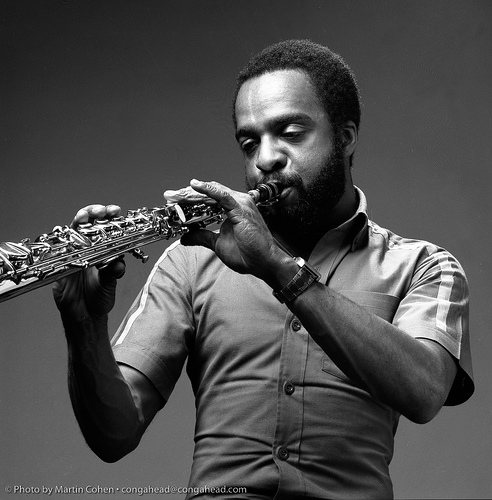Many consider Grover Washington, Jr., (December 12, 1943 – December 17, 1999), to be the founder father of smooth jazz, and the master of jazz-funk. Washington’s hits include Mister Magic, Black Frost, and The Best Is Yet To Come. These were just a few of his many memorable hits in the jazz-funk genre during the 1970s and 80s. He also performed with many other artists, such as Bill Withers, who is still in regular rotation on radio, and Phyllis Hyman, who are both on Just the Two of Us. His take on a Dave Brubeck masterpiece, Take Another Five, as well as his hit Soulful Strut, are also notable. Washington was born 12 December 1943 in Buffalo, New York. He is considered to be one of jazz’s greatest saxophone players and one of the most influential jazz musicians of all time. Many others followed his example. Washington’s life was rich in music. His mother was a church choir singer, and his father was an avid collector of old jazz records and a saxophonist. Music was always present in Washington’s home. He was raised with jazz legends like Benny Goodman and Fletcher Henderson. Grover Sr. gifted Jr. a saxophone at the age of 8. He wanted to be better than he was. He practised and sneaked into clubs in order to hear the best of Buffalo blues music. He moved to Buffalo, where he played in a group called the Four Clefs. Soon after, he was drafted to the US Army. However, this was to his advantage as he met Billy Cobham, drummer. Cobham was a major in New York City and introduced Washington to many musicians. Washington left the Army and began freelance work in New York City. He eventually settled in Philadelphia in 1967. Grover’s breakthrough came at the expense a second artist. Hank Crawford, an alto sax player, was unable to record with Prestige Records so Washington took his place. Washington was only a backup. His first album, Inner City Blues, was the result. He was talented and had heart and soul. He was refreshing for his time and made significant progress into jazz mainstream. 1974’s Mister Magic, his fifth album, was a commercial success and brought Eric Gale into Washington’s arsenal as a nearly-permanent member. Washington was able to make a string of highly acclaimed albums that brought him through the 1970s. This culminated in his signature album, Washington’s “signature piece” for all things Washington would do thereafter. Winelight, Washington’s 1980 album, was his most important work. It was smooth and easy to listen to, with r-and-b sounds. Washington’s passion for basketball and the Philadelphia 76ers led him to dedicate Let It Flow, his first track to Julius Erving (Dr. His collaboration with Bill Withers, soul singer, was the highlight of the album and a mainstay of radio airplay. This album was the last step to Motown and landed him on Elektra Records, a new era in jazz excellence. The album was certified platinum in 1981 and won the Grammy Awards for Best r u0026 b Song (“Just The Two of Us”) and Best Jazz Fusion Performance (“Winelight”) in 1982. “Winelight” received nominations for Record of the Year, Song of the Year, and Best Jazz Fusion Performance. Washington was credited with bringing forth a new generation of talent in the late 80s, early 90s. Washington is credited with bringing Kenny G into the mainstream, as well as bringing smooth jazz artists such as Steve Cole, Walter Beasley and Najee to the stage. Washington’s tragic and ironic life was that he could not get his big break due to another artist’s absence. However, Washington lived long enough for smooth jazz to reach the final points of the old millennium. He didn’t outlive Hank Crawford who gave him his big break (and is still living, as of 2005). Washington fell unconscious in the green room while waiting to tap four songs for The Early Show at CBS Studios in New York City. Washington was taken to St. Luke’s-Roosevelt Hospital where his doctors declared him dead at 7:30 p.m. He had suffered a massive cardiac arrest. Grover Washington Jr.’s legacy is preserved in the lives of future Jazz musicians. His life is also celebrated on college campuses across the country and in his hometown of Philadelphia. Text contributed by users is available under Creative Commons By–SA License. It may also be available under GNU FDL.
